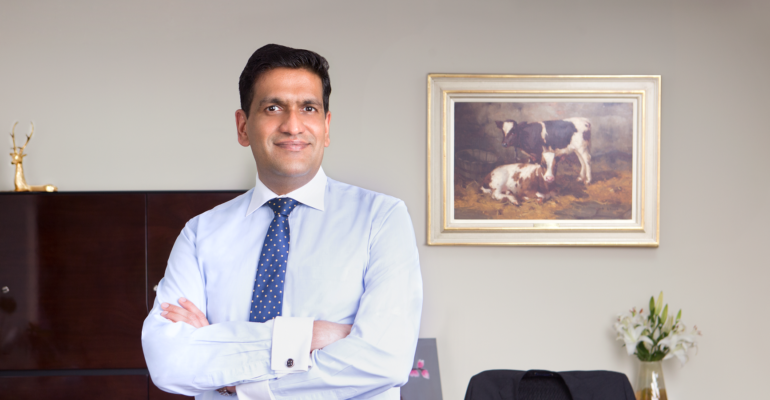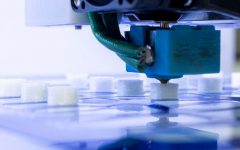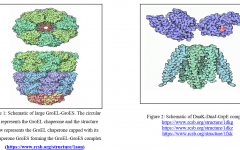In Conversation with Mr. Siddharth Mittal, CEO & MD, Biocon
January 4, 2021 2021-09-22 10:14In Conversation with Mr. Siddharth Mittal, CEO & MD, Biocon
In Conversation with Mr. Siddharth Mittal, CEO & MD, Biocon
BA: What do you think our education systems should follow to encourage innovation and experimentation among young minds?
Siddharth: To my mind, the Indian education system has two drawbacks when it comes to fostering a culture of innovation and experimentation amongst our youth. It is top-down and one-way in thought-flow focusing on acquiring facts and knowledge rather than understanding concepts and sharpening critical thinking abilities, while on the other hand, we teach our children to chase behind marks, grades, and ranks like they are the Holy Grail. Not only do we celebrate success in ranking, but also deride failure. This discourages students from taking risks, which is the bedrock of innovation, and pushes them to opt only for tried and tested routes. As a result, India produces far fewer entrepreneurs and innovators than countries like the US, for instance.
I believe we can address this by encouraging curiosity among students and evaluating them based on problem solving skills, ideation, and creativity. The system must help children identify their individual aptitudes instead of taking a ‘one-size-fits-all’ approach. Importantly, policy makers must recognize and reward institutions and industries that focus on research and innovation. This will ensure that students choose career paths in such organizations, where they are more readily employable and have a greater chance of achieving both professional and personal success. For this, we need to focus on research-driven academics and closer coordination between industry and academia.
That said, I admit that things have improved over the last two decades. These days I do see classrooms encouraging questions, experimentation, and the practical application of theory. I hope this momentum sustains.
BA: As the CEO of a biopharmaceutical company, what according to you are the important skills that are usually looked for in the candidates, when they are being hired?
Report this ad
Siddharth: In general, it will always be advantageous if job aspirants make the effort to keep themselves abreast of the latest developments in the industry, including the emerging sciences, technologies and techniques, best practices, and the regulatory environment. In the technical domain, students will be at an advantage if they acquire exposure and skills in modern biotech and immunotech methods like Polymerase Chain Reaction (PCR), Gel Electrophoresis, Enzyme-linked Immunosorbent Assay (ELISA), and such. In bioinformatics, skills such as sequence analysis, protein structure prediction, and genome annotation will be useful. In support and enabling areas such as engineering, automation and control systems are where they need to equip themselves.
Given that education is pretty much standardised, an employer is likely to look at what they bring to the table beyond this, how they cope with challenging situations, how well they work in a team, their leadership acumen, passion for the profession, ability to communicate articulately, and so forth. Some industry-based training will, of course, be beneficial.
Above all, I would put adaptability and a zeal for continuous improvement amongst the topmost desirable traits.
BA: What skills should biotechnology students develop to meet the demands of a post-COVID world?
Siddharth: Looking ahead, I predict that the industry will become more technology focused and digitally oriented in a post COVID world, and the momentum of Industry 4.0 will increase exponentially. R&D will increasingly see the use of interoperable data platforms and AI driven analytics. Other advanced technologies like AR, nanorobots, IoT and 3D printing are also rapidly being developed and deployed. In such a situation, students who adopt a digital orientation and tech focus will find themselves at an advantage.
COVID also taught us that we can take nothing for granted and that we need to be able to adapt to changing situations with agility. Those who are entering our industry should fully prepare themselves to be positive and nimble in their response to change, and not become complacent or passive. The ability to think out of the box and face challenges head on are critical for our industry, as applied science and speed of execution must go hand in hand. Saving lives and keeping people in good health is a big responsibility and students need to keep constantly abreast of innovations that can help in this mission.
BA: What changes do you think the biotech/ biopharma industry needs to go through in terms of promoting innovation to ensure affordability and accessibility of key therapies?
Siddharth: Product research and development is a resource intensive activity. New drugs and therapies tend to be expensive when launched – investments need to be recovered, and stakeholder interests protected. At the same time, we have a social responsibility to make these medicines accessible to all patients.
Both these goals need not be mutually exclusive. By going digital and leveraging technology to accelerate and streamline processes, we can bring down costs. For example, AR and AI based simulation techniques can enable faster and more accurate predictive analyses and help research efforts attain more desirable outcomes. Increasing our focus on data analytics to work with real time data will further speed up research. An enhanced understanding of the interaction between drugs and the genetic makeup of patients helps improve targeting of the therapies. Robust, low-cost genetic profiling will accelerate and improve outcomes of clinical trials, thus helping reduce the cost of drug development.
Apart from these, supply chain efficiencies need to be enhanced to bring down transportation costs. The cold chain network needs to have a wider reach and refrigerated warehousing facilities must be increased. We also need to work closely with the government to find solutions which will ensure that IP is protected, while drugs are also made affordable and accessible to patients – say through subsidisation initiatives, NGO involvement or public-private programs.
BA: Biocon Academy has recently completed 7 years imparting knowledge to more than 700 students in the life sciences sector with a 100% placement track record. What has your impression been about the students based on your interaction with the academy so far?
Siddharth: Biocon Academy plays an important role in reducing the skill deficit in the Indian life sciences industry. I have found Biocon Academy graduates to be proficient with the latest tools and technologies, and also very keenly aware of the past, present and potential future of the life sciences industry. They are the perfect blend of passion and skill that you would look for in a fresh graduate. The fact that the industry leaders hire from Biocon Academy is the single biggest testimony to their quality.
BA: What, according to you, should Biocon Academy do next to prepare life sciences students and make them industry-ready?
Siddharth: I would also like to see Biocon Academy make the best use of the advances in technology, so as to make learning a more immersive experience. One thing that comes to my mind, particularly in the wake of the pandemic, is the deployment of a virtual reality platform that lets students learn without being physically present at the factories. I would also like the Academy to develop customised programs to address skill gaps based on industry needs. Process Chemistry, Toxicology, Pathology, In vivo Physiology, Proteomics, Metabolomics, Clinical Pharmacology and Formulations are some of the areas that need to be addressed.
BA: What is your advice for the next generation biotech leaders?
Siddharth: Learn to ride the digital wave because that is what will take us to the future. Imagine doctors predicting an impending heart attack and taking all precautions to prevent it? Or cancer being cured with the bacteria in the gut? If current advancements in data analytics and electronic health records, or the rapid strides in genomics or metabolomics research are anything to go by, such treatments will become reality very soon. Think about handheld ultrasound, sleep tracking, cardiac monitoring, lab-on-a-chip technologies, portable mass spectrometers, polymerase chain reaction, precision medical imaging etc. The possibilities are endless, and nothing is impossible. We have barely scratched the surface.
Today, there are tons of biological big data being harnessed worldwide — be it in genomics, microbiome, proteomics, exposome, transcriptome or metabolome. Couple these with the rapidly growing machine learning and AI capabilities and the opportunities defy imagination.
BA: Why, according to you, is it important to promote diversity and inclusivity in the biotech / biopharma industry?
Siddharth: Talent and competence know no gender, race, religion, caste, or skin colour. Therefore, an organisation that does not promote diversity and inclusivity will find its growth getting constrained by the hidden biases of its people. Every individual comes with unique talents that bring something different to the table. In an age and in an industry that is catering to global populations, with different needs, a diverse team of professionals, working in close collaboration with each other, can bring a deeper understanding into how to address these needs.
When equal opportunity is not provided and merit is accorded second priority to other criteria such as gender or race for example, it sets in motion a cycle of incompetence and patronage that will eventually metastasize into an organisation-wide culture. Genuine talent will then begin to desert the organisation and it will ultimately fail.
Profile:
Mr. Siddharth Mittal is the CEO and Managing Director of Biocon Ltd. He joined Biocon in May 2013 and served as President & Chief Financial Officer between August 2014 and November 2019. He has more than 20 years of diverse global experience in strategic finance and accounting, mergers and acquisitions, taxation and general management.








